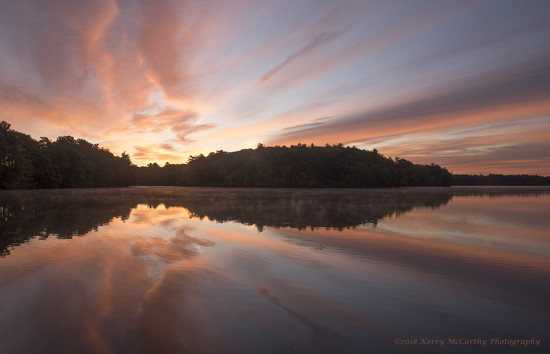If getting up at the crack of dawn to take pictures of the rising sun is your cup of tea, then make sure you set your alarm early on the 21st June this year, because it is Summer Solstice in the northern hemisphere, and the start of the longest day of the year.
With a staggering 16 hours and 43 minutes of daylight to take advantage of in the UK, and 15 hours and 6 minutes in the US, it is an exciting day for photographers! To get you off to a good start, here are some great hints and tips for capturing the best shots as the sun rises.
Find your spot in advance
Think about where the sun will rise (it rises in the east); think about what you want in your shot and see if the two combine. It is no good rushing down to the coast to capture sunrise over a body of water only to realise that you are facing west!
Pack your bags the night before
Check your battery levels, load your film, check your memory, and pack before you go to bed. With one-off moments like the dawn of the longest day, you don’t want anything to hold you up when you should be on location.
Get up early
Of course, this should be a no-brainer – but remember you need to be at your chosen spot BEFORE the sun rises. Allow plenty of time to get there, explore the area and decide what will look good in the picture.
Take a tripod
With low light levels, your exposures as the sun first comes up will be too long for a clear hand held shot. Avoid blur and take a tripod.
What to have in your shot
Sunrise over a body of water is good, the sun edging up over a flat horizon is also good. If you have a mountain view, that is good too, so are trees and interesting buildings and people – basically, have a subject other than just the sun in your shot to add interest, such as Stonehenge!
Framing
Keep the silhouette line low so that you can capture the huge range of colours that emerge across the sky as the sun rises. As the sun gets higher in the sky, move the horizon line up so you capture the colours and details of the foreground such as dew, fog, mist and the world in general waking up. Try to avoid a 50/50 split with the horizon in the middle - unless you have something interesting going on.
Opt for manual not auto exposure
You will have far more control over the colours if you choose manual. Auto settings often sap depth, colour, intensity and interest by trying to balance out the colours in a sunrise. If you don't have manual exposure control, use the exposure lock if you have it so you can lock on to a brighter or darker area in your shot to over or under expose the image according to your liking.
Tips for manual
Experiment with aperture and shutter speed until you get the look you want – but remember you need to be pretty quick with this as the light levels will be constantly changing as the sun gets higher. Make it easier by choosing shutter priority on a slow speed then work your way up; or vice versa of course.
Filters
A split ND filter will help you expose of the darkness of the land and the brightness of the sky correctly without compromising the beauty of either. A colour-enhancing filter will increase the intensity of the sun’s colours, and render your silhouettes more solid.
UK - Sunrise on Thursday 21st June 2012 at Stonehenge is at 0452 hrs (4.52am)
US - Sunrise on Thursday 21st June 2012 at New York is at 0525 hrs (5.25am)





The northern solstice this year occurs at 23:09 UTC (or GMT, if you prefer) on the 20th June. In the UK, that is at 00:09 on the 21st June, because the UK is currently on British Summer Time (UTC/GMT + 1).
The longest day does not necessarily fall on the same day as the solstice. This year, taking London as an example, the longest day is the 20th June, with a total time between sunrise and sunset of 16 hours, 38 minutes and 20 seconds. This is one second longer than on the 21st June. For many other locations in the UK, the length of the day is the same on the 20th and 21st June (or, more accurately, is less than a second different).
If you are in a different country, you can determine the time that the solstice occurs here:
http://www.timeanddate.com/worldclock/fixedtime.html?iso=20120620T2309
And you can determine the longest day by selecting a nearby location here, and looking for the longest duration in the 'this day' column:
http://www.timeanddate.com/worldclock/sunrise.html
(The terms northern solstice and southern solstice are hemisphere-independent, unlike summer solstice and winter solstice.)
@sassik Thanks, I will amend.
@abirkill @kerrymccarthy
Would also like to mention the Harvest/Hunters Moon this month (Harvest in the Southern Hemisphere & Hunters in the Northern). It is the full-moon nearest the Equinox (equal day & equal night). For me in Western Australia it is the 27th March approx. 5:30 to 6:00pm. The moon will come up as a huge yellow ball. You can google it to find out the date and time it will occur where you live.